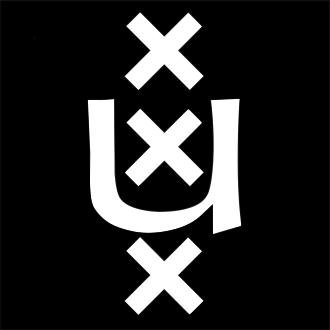More info on the venue and event series:
Time machines have been the stuff of stories and speculations for centuries. Today, advancements in computation allow us to construct such machines as complex information systems that process cultural heritage as big data of the past. In this event, researchers of the new Time Machine project present their exciting initiative.
The Time Machine project is a large-scale research initiative designed to map over 5000 years of European history, transforming kilometres of archives and large collections from museums into a digital information system. Over 281 institutions from 33 European countries are joining forces to bring the past back in one of the most ambitious projects aimed to consolidate European culture and identity. This event is an opportunity to engage with these researchers and hear from their ideas as to what the European Time Machine is and does, as well as to how it responds to the societal challenges of several European cities. Frédéric Kaplan, Julia Noordegraaf and Andreas Maier each present different facets of the project, while Claartje Rasterhoff moderates a panel discussion with Valérie Gouet-Brunet, Harry Verwayen, Bastien Varoutsikos and Deborah Papiernik on applications of the Time Machine for environmental security, the preservation of endangered heritage and the creative industries.
About the speakers
Julia Noordegraaf is professor of Digital Heritage in the department of Media Studies at the University of Amsterdam. She is director of the Amsterdam Centre for Cultural Heritage and Identity (ACHI), one of the university’s research priority areas. At ACHI she leads the digital humanities research program Creative Amsterdam (CREATE), that studies the history of urban creativity using digital data and methods. Noordegraaf’s research focuses on the preservation and reuse of audiovisual and digital heritage.
Frédéric Kaplan holds the Digital Humanities Chair at École Polytechnique Fédérale de Lausanne (EPFL) and directs the EPFL Digital Humanities Laboratory (DHLAB). He conducts research projects combining archive digitization, information modeling and museographic design. He is currently directing the “Venice Time Machine”, an international project aiming to model the evolution and history of Venice over a 1000 year period. In parallel to his scientific work, Frederic Kaplan participated to exhibitions in several museums including the Biennale of architecture in Venice, the Grand Palais and the Centre Pompidou in Paris and the Museum of Modern Art in New York.
Andreas Maier is a computer scientist and specialist in topics of pattern recognition and machine learning. He heads the pattern recognition lab at the Friedrich-Alexander-Universität working on topics in medical imaging, speech processing, computer vision, and general machine learning. His work focuses on tomography of books and scrolls (i.e. reading them without opening them), scribe and writer identification, and the fusion of deep learning with traditional techniques, such as general signal processing or knowledge representation.
Claartje Rasterhoff is Assistant Professor of Urban History and Digital Methods at the department of History, University of Amsterdam. She acts as coordinator of the Amsterdam Time Machine project. Her research concerns the relationship between culture, economy, and cities since the sixteenth century. She is currently developing a digital historical project on the cultural economy of urban nightlife. She has published on the painting and publishing industries in the early modern Dutch Republic, the organization of the early modern international art trade, and the history of Dutch Design.
Registration
You can sign up for this program for free. If you subscribe for the program we count on your presence. If you are unable to attend, please let us know via spui25@uva.nl | T: +31 (0)20 525 8142.
